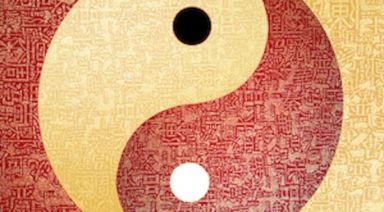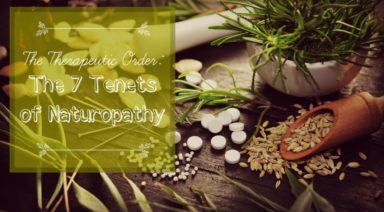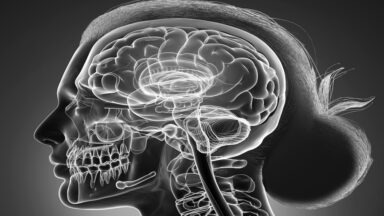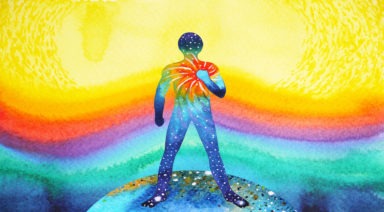What You Should Know About Your Liver

The liver is the second largest organ in the body (your skin is the largest) and arguably the most popular one mentioned in yoga studios, health magazines, and wellness centers throughout the spring and summer season. Considering your liver is involved in nearly 500 bodily functions—including detoxification and producing important proteins such as enzymes, hormones, blood proteins, clotting factors, and immune factors—there’s no mystery why it’s important to honor and protect this essential organ no matter what season it is.
However, after the winter is over, it’s a great time (from the Ayurvedic perspective) to purge any or all unhealthy winter habits and wake up to the vibrant energy of the spring season. As a yoga teacher, nutritionist, and Ayurvedic Health Educator, I’m always a student and curious about the human body and how it operates. I’m always eager to learn what I can do to make it thrive.
Detoxification
The liver and kidneys are the primary organs for detoxification and naturally help you cleanse by eliminating waste products in your sweat, urine, or feces. If your liver is in good shape, you will feel energetic and find it easy to think clearly and maintain a happy, stable mood. When the liver is not functioning well, it will not remove waste products efficiently and you will feel quite the opposite of healthy.
The liver acts as a proverbial club bouncer, standing guard at the entrance; on a daily basis, the liver filters unwanted items out of your bloodstream such as drugs (over the counter and prescription), alcohol, cigarettes, environmental pollutants, caffeine, food additives, smog, chemical household cleaning products, plus ammonia and bilirubin (which are produced in the body as a result of protein metabolism).
Please remember that every toxic substance mentioned above will eventually be processed by your liver. If your liver can’t break down the toxins, they simply don’t go anywhere, which makes it harder for the liver to do its regular job. To help give your liver a break, please take extra caution with alcohol consumption. If alcohol is consumed on a regular basis, normal liver function may be interrupted, leading to chemical imbalances and depression. Liver cells may be destroyed or altered, resulting in fatty deposits (fatty liver which will be covered next month), inflammation (alcoholic hepatitis), and/or permanent scarring (cirrhosis). Mixing alcohol and medications may also damage the liver.
If you use alcohol to relax or reduce stress at the end of a long day, consider getting some exercise instead, then treating yourself to a “mocktail” (non-alcoholic drink) and see if these replacements help you to feel more clear and emotionally stable at the end of each day.
One of the numerous incredibly cool things about your liver is that it has the extraordinary gift of regenerating itself. However, I don’t recommend overburdening it with unhealthy lifestyle choices and foods high in fat, sugar, cholesterol, and pesticides that may cause harm down the road.
Diet: Liver-Supporting Nutrients
Making an effort to eat seasonal, local, organic, whole foods rich in the following nutrients below are important preventative steps for optimal liver health. Here’s a short list of important liver-supporting nutrients and the foods rich in them, which can help keep your liver happy. I hope you enjoy adding them to your cart during your next visit to the market.
Folate (a B vitamin): Green leafy vegetables, spinach, kale, chard, beet greens, asparagus, broccoli, avocados, and brewer’s yeast.
Vitamin C: Grapefruit, lemon, red bell peppers, broccoli, brussels sprouts and strawberries.
Flavonoids: Beets, apples, blueberries, cabbage, parsley, tomatoes, strawberries, and white, green or black tea.
Magnesium: Dark green leafy vegetables, tofu, almonds, pecans, cashews, Brazil nuts, wheat bran, millet, brown rice, dried apricots.
Iron: Kelp, brewer’s yeast, blackstrap molasses, wheat bran, pumpkin seeds, sesame seeds, sunflower seeds, millet, organ meats, parsley, clams, almonds, dried prunes, raisins, Jerusalem artichokes, beet greens, egg yolks, whole wheat bread, oats, brown rice, dried peas, lima beans, kidney beans, green peas, almonds, artichokes, and dark green leafy vegetables.
Selenium: Found in our soil and will vary greatly depending on where your food was grown and how healthy the soil is. Foods with concentrated selenium include brewers’ yeast, wheat germ, liver, butter, molasses, Brazil nuts, oats, garlic, mushrooms, radishes, and tomatoes.
Cruciferous Vegetables: broccoli, Brussels sprouts, cauliflower.
Root: Turmeric (anti-inflammatory, helps the liver detoxify carcinogenic chemicals and stimulates the production of bile).
Herbs: Echinacea, dandelion, red clover, burdock, and milk thistle, which has a reputation for promoting the growth of new liver cells and might be worth exploring during a seasonal detox If you are considering a liver flush or cleanse, it’s important to make sure you stay hydrated and are also having regular bowel movements each day.
Daily bowel movements are essential because the chemicals and pollutants that get released in the body from the liver will end up in your stool for elimination. Slow or irregular elimination patterns may lead to further complications. During a detox phase, I often recommend mild laxatives such as Triphala (Indian formula found in most health food stores in capsule form), psyllium, flaxseeds, chia seeds, and prunes to ensure your colon is being emptied two to three times a day. I also recommend consulting with your local Ayurvedic practitioner (yogi health scientists) or nutritionist to support you in building a custom program that addresses your uniqueness and health goals.
As you can see there is a lot you can do in your daily life to support your liver. If you give your liver a break and limit the number of drugs, alcohol, pesticides, fatty foods, artificial sweeteners, and sugar in your diet on a regular basis, there would be less need to “detox” your liver. A balanced diet with regular exercise and hydration goes a long way in regard to the health of your organs.
Study Finds Anti-Inflammatory Meds Are Causing Chronic Pain

A groundbreaking new study suggests that commonly used anti-inflammatory drugs and steroids may cause pain to become chronic. Could this lead to a dramatic paradigm shift in how pain is managed and prevented?
For the vast majority of people in acute pain, taking an over-the-counter anti-inflammatory, such as ibuprofen is the usual course of action. Inflammation has, for decades, been seen as a cause of pain and its control, the goal of patients and doctors. A new study suggests, however, that inflammation may actually be necessary to prevent pain from becoming chronic.
Given today’s overwhelming prevalence of chronic pain — pain that persists for more than three months — scientists have lately been turning their focus to studying the process by which acute pain transitions into more lasting and debilitating pain.
Researchers at McGill University recently completed a study in which they observed this process, using several methods. First, they looked at patients with lower back and facial pain.
Upon analysis of their immune cell samples, the scientists were surprised to find that those whose pain resolved showed an intense spike in the activity of inflammatory genes during the acute pain stages, which then rapidly diminished within three months.





































